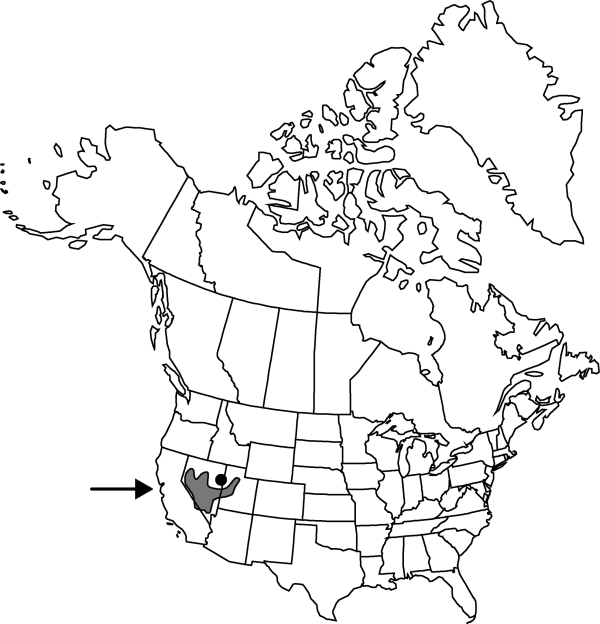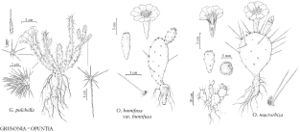Grusonia pulchella
Phytologia 26: 176. 1973.
Shrubs, forming clumps, 10–20 cm. Roots tuberlike, 7–10 × 3.5–5 (–7.5) cm. Stem segments cylindric to ellipsoid, clavate, 1–4 (–10) × 0.5–1.2 (–2.5) cm; tubercles rather prominent, 5–9 mm; areoles 1–2 mm in diam.; wool white to gray. Spines 8–15 per areole, mostly in distal areoles, divergent to deflexed, redbrown or white, aging gray, flattened, longest to 6 cm. Glochids adaxial in areole, yellow to reddish yellow, to 8 mm, barbed. Flowers: inner tepals rose to purple, 15–25 mm; filaments green to yellow; style purplish; stigma lobes white to yellowish. Fruits reportedly reddish, obconic, 15–30 8–12 mm, fleshy, smooth; spines hairlike, flexible, antrorsely barbed; areoles ± 50. Seeds whitish, 3–6 mm broad. 2n = 22.
Phenology: Flowering late spring (May–Jul).
Habitat: Mojave Desert, Great Plains, sandy to rocky flats or slopes, often at edges of dry washes and lakes
Elevation: 1200-1900 m
Distribution

Calif., Nev., Utah.
Discussion
Reports of Grusonia pulchella in Arizona (L. D. Benson 1969, 1982; J. Lode 1993) are undocumented (B. D. Parfitt 1988) or lack adequate specimens. Those reports resulted either from locality data errors or confusion with G. parishii or Cylindropuntia whipplei.
Selected References
None.
